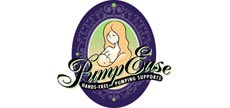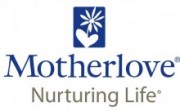By Elita Karma. Posted on August 16, 2010
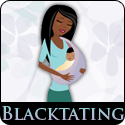
By Elita of Blacktating.com for the Best for Babes Foundation ©2010
Remember last week when supermodel Gisele Bundchen said she thought there should be a law requiring moms to breastfeed for 6 months? Well, she got her wish. Indonesia passed a law that will go into effect in October that states that all women who are medically able to breastfeed must do so for at least 6 months. Mothers who decline will face up to a year in jail or a $15,000 fine.
Did you hear the one about the breastfeeding advocate who is formula feeding her baby? That was the secret Attachment Parenting guru Katie Granju revealed on her blog this week. Katie, who lost her eldest child weeks before giving birth, said the stress caused her mature milk to never come in. After trying every technique she knew, she finally came to the realization that her baby girl will have to be on formula. A good reminder that when we see moms bottle feeding in public, we don’t know their stories or how hard they may have tried to breastfeed without success.
I loved this article highlighting two hospitals in the Tampa area who are encouraging and supporting moms with babies in the NICU to breastfeed. Nearly 80% of the moms of these sick babies are nursing. Many have said they would have given up a long time ago if not for the support systems in place at the hospital. Don’t you love it when the hospital gets it right and is promoting breastfeeding instead of booby trapping moms?
The Health Ministry in China investigated claims this week by parents who complained, their baby girls began to develop breasts after drinking a particular brand of infant formula. The ministry says “no link” can be found between the formula and the breast growth.
Dr. Thomas Hale, the go-to doctor for information on medicines and breast milk, has opened his Infant Risk Center. This call-in center is now open to take calls from professionals and parents. There is no charge for this fantastic service that will provide accurate, evidence-based information on medications that are safe during pregnancy and lactation.
And just when you thought it was safe to leave the house with your kids, yet another mom has been kicked out of a public place for breastfeeding her baby. This time it was McDonald’s. The owner of the restaurant has apologized, but I’m getting a little tired of reading this story over and over again.
The National Health Promotion Strategy kicked off their “Well Bermuda” program with a Breastfed Baby Photo Exhibit this week. The Minister of Health in Bermuda said of the exhibit: “Every baby displayed on these walls is a winner simply because they were fortunate enough to be given the greatest of gifts.” I agree!

Breastfed Baby Photo Exhibit
By Elita Karma. Posted on June 1, 2010

By Elita of Blacktating.com for the Best for Babes Foundation ©2010
This week started off with a bang when a writer for the Better Homes and Gardens blog posted a piece on the Ten Commandments of Dining with Little Kids. The author, Heather W., who is not a mom, suggested that women who are breastfeeding should “take it to the restroom.” So many were outraged at the idea that a baby should eat in the toilet that within a few hours the page was flooded with comments, telling Heather W. what she could do with her suggestions. Thankfully, the Better Homes and Gardens blog Editor quickly issued an apology and the article was removed. A new article filled with useful tips, written by real moms, replaced it.
Researchers discovered a few years ago that breast milk contains stem cells and now doctors in India have isolated the cells and say they have the ability to differentiate into different cells. Imagine what new stem cell therapies are around the corner!
Are you a Spanish-speaking mom seeking breastfeeding information and support? Join Mother’s Utopia’s weekly breastfeeding Twitter party called Club de Lactancia, every Wednesday at 8 PM. The chat is completely in Spanish and your questions will be answered by an IBCLC. The hash tag for the party is #lactancia.
Want to send a pregnant friend or new mom information on the benefits of the breastfeeding? Our very own Danielle Rigg has created a fantastic list of some lesser known and amazing facts about breast milk and breastfeeding called Mom-Made Wonder Food. The document, which includes citations, can be printed out and kept handy for when you need some extra inspiration or want to dazzle friends and family with the magic of mother’s milk!
Babes, how long after the birth of your baby did you go back on birth control? Most moms I knew waited until their milk supply was well-established before beginning hormonal birth control, but new CDC guidelines suggest that the benefits of beginning birth control immediately outweigh the risks. According to the Academy of Breastfeeding Medicine these new recommendations “ignore basic facts about how breastfeeding works.” The ABM has asked the CDC to change their recommendations, and in the meantime you can follow ABMs protocol for contraception and breastfeeding.
Are you in the market for a new wrap? Best for Babes has teamed up with Moby Wrap to create a baby carrier embroidered with our logo. Proceeds from the sales of the gorgeous wrap will benefit Best for Babes.
On our Facebook fan page this week, we asked for your tips on breastfeeding while babywearing and you were overheard saying:
Usha Tunnell Nurse in a tummy to tummy position, there is no need to move into the cradle position. Untie the wrap, loosen to lower baby to breast lever and retie. Bust out the breast and help baby to latch.
Beth Shupp-George The best tip I got for us well-endowed gals is to pull the breast out over the top of the bra, if possible, rather than unhooking it.
Heather Farley Tips: PRACTICE! I found that if I had the baby’s head on the side of the sling that didn’t go over my shoulder, she would nurse better.
By Elita Karma. Posted on May 24, 2010

By Elita of Blacktating.com for the Best for Babes Foundation ©2010
Have you ever asked yourself, “Who benefits from all of this research conducted on breast milk?” It seems that we are constantly hearing about a new study touting the benefits of breastfeeding and breast milk and as as breastfeeding advocates, we get excited and forward the links to everyone we know. But who sponsors the research and why? We challenged readers not to believe every study they see, and in an excellent piece called Full Disclosure on the Academy of Breastfeeding Medicine’s blog, Dr. Alison Stuebe takes it a step further, examining how and why certain industries sponsor scientific studies.
Has anyone ever asked you, with eyebrow raised, if you were still nursing? Then you’ll love this piece by blogger Maria from Mommy Melee, who is still nursing and still is not ashamed!
Thought formula company marketing couldn’t get any lower? Then may I present you with Enfamil’s new chocolate formula for toddlers. The Atlantic did a great piece on the dangers of this product and is helping to raise awareness about the WHO Code. We’d love it if you could take a moment and post a comment thanking them. Although it’s important to call out the media when they get it wrong, we also have to remember to commend them when they get it right, so we can see more coverage of how dangerous this aggressive formula marketing really is.
Remember when actress Julie Bowen was on The View and they wouldn’t allow her to show a photo of her nursing her twins in the football hold? Well, she was a guest on the George Lopez show this week and he allowed her to show the photograph.
Beautiful!
If you’re a work out of the home mom like me, I know you can relate to some of the quotes from Vanessa Williams in this month’s Working Mother magazine. In the interview, Vanessa says, “There were definitely times I was torn and wished I could have stayed with my kids. There were times that it was very difficult. Just eight weeks after I’d had my second child, I had to go to England to promote my album for ten days. So I dragged my breast pump through airport security. I was so weepy to be leaving my newborn. Those were tough times.” As a mom who has done the same, I feel her pain, but kudos to Vanessa for making breastfeeding a priority!
Can breastfeeding protect babies from spiking fevers after immunizations? A new study shows that exclusively breastfed babies are 54% LESS likely to have a fever after being vaccinated. “When infants are sick and after a vaccination shot, they need not only water, food and a calm environment, but also to be protected,” said the lead author of the study. All things readily provided by breastfeeding.
Finally, Babes, we want to thank you for helping spread the word about Best for Babes on Facebook and getting us to our goal of 2,500 new “Likes,” and $2,500 from our sponsors. This week you were Overheard on Facebook talking about your nursing goals. You told us…
Dawn Davenport Covin with my first it was 1 year until I saw a lady (now friend) nursing an 18 month old and I asked myself why would I stop giving my baby my milk to give her cow’s milk? So, we went on to nurse for 26 months.
Claire Louise Hoyle I said 6 months and done!!! She self-weaned at 18 months and I was gutted!!! See how long we get second time as I have no goal……4 months so far….
Anna Caulkins Swank I never really set goals… always went with an “until they’re done” approach. That ended up being 10 months for Jonny, 20 months for Gracie, 18 months for Levi, and Reagan & Sera are still nursing at 22 months (and not showing any sign of stopping!)
By Elita Karma. Posted on May 17, 2010

By Elita of Blacktating.com for the Best for Babes Foundation ©2010
What a week for breastfeeding, Babes! Nursing moms were the focus of the White House, a TV show, the fashion world and more!
Supermodel Gisele Bundchen made lots of friends in the breastfeeding blogosphere last week when she blogged about the transformative nature of motherhood. Gisele’s words about breastfeeding were so beautiful I have to quote them in full:

Courtesy of Gisele Bundchen's Blog
“I’d also like to talk about a very important issue, which is breastfeeding. It’s essential for the newborn and creates a bond between mother and her child. It’s a unique moment when the body changes to nurture; it’s the Nature’s blessing! Breastfeeding, mainly the first days, poses some challenges, but the reward is sublime. In addition to having all the proteins, fats, and vitamins the baby needs, breastfeeding is an act of love and affection. It would be great if all the mothers could experience the breastfeeding.”
We couldn’t agree more and it’s why we work so hard to support moms so they can meet their breastfeeding goals!
Gisele’s letter inspired our post on mainstream breastfeeding and pregnancy magazine covers-hint, hint, Gisele! The fashion world gave props to nursing mother Rachel Feinstein in the May 2010 issue of American Vogue.
In research news, a study shows what we’ve all believed for some time: breastfed babies know “when to say when,” and bottle-fed babies are often overfed, regardless of whether they’re getting breastmilk or formula. This could explain why breastfed babies are less likely to be obese. A baby who is nursing is learning to self-regulate milk intake and is able to stop when full.
This is another reason we were so excited to see breastfeeding recommendations in the White House Task Force on Childhood Obesity report. Thanks to our board member Marsha Walker for combing through the 124-page document and finding the 70 recommendations specific to breastfeeding, which included hospitals becoming designated as Baby Friendly and educating day care workers on the importance of breastfeeding and how to handle breastmilk.
Ever wondered what’s really going on inside your breast and your baby’s mouth during breastfeeding? A new ultrasound video reveals the true nature of the mechanics of breastfeeding. It turns out it’s NOT all about compression, and these findings could help to diagnose babies with a weaker suck and allow moms to pump until the baby can be brought back to the breast. Although this study’s findings are interesting and may potentially affect how breastfeeding problems are managed, keep in mind that the study was funded by Medela. As a pump and breast shield manufacturer, Medela obviously has a stake and great interest in how these items are used and would benefit financially from their increased use.
So we already know pediatricians don’t learn much about breastfeeding in medical school, but what about the nurses who are taking care of moms post-partum? It turns out they don’t learn much about breastfeeding either. No wonder so many moms feel they weren’t properly supported by nurses after birth!
Did you catch ABC’s “What Would You Do?” segment on nursing in public? The candid camera show wondered what would happen if a manager harassed a breastfeeding mother and asked her to leave a café. Would the patrons stand up for the mom? The show not only tackled whether the race or age of the mom made a difference in how she was treated, but also what would happen if alcohol was involved. Although I liked some parts of the experiment, it quickly devolved into shaming and inaccuracy. Anne at Dou-La-La has an excellent post examining all of these issues. If you caught the show, what did you think?
We’ve been so pleased with all of the new “Likes” our Facebook fan page has received. Remember, for every new “Like,” our fabulous sponsors will donate $1 to the cause! We asked you last week, “I really got the hang of breastfeeding when my baby was ____ old” and you were overheard saying:
Ahmie Polak Yeung about five minutes. Had a fantastic CNM, unmedicated birth, straight to my belly & breast and was nursing before they could get the APGAR
Jenna Conley Stevens About 6 weeks with Gianna, day 1 with Athena….she was my champion nurser! Errr, IS my champion nurser haha.
Roberta Stewart 6 weeks. It didn’t hurt anymore, latch was good, and we’d figured out positions.
Jennifer Sanders I never got hang of it. I thought I did, but she decided I’m doing it wrong and does it her own way. For example, she thinks downward facing dog is a nursing position.
By Bettina. Posted on April 8, 2010
. . . until you’ve asked some important questions.
Last week, I saw a tweet about a new study linking long-term breastfeeding with more aggressive cancers. (“Long-term” is defined in the article as breastfeeding for six months or more . . . we call that “normal” breastfeeding . . . I would only call breastfeeding “long-term” if it extended beyond the natural age of weaning which is somewhere around 3-5 years. . . but I digress). The study was reported in Health Day on March 26th.

Oh No! Another confusing breastfeeding study!
Immediately my head began to spin. Didn’t a recent study show that breastfeeding for more than 3 months by women with a family history of breast cancer, reduces their risk for breast cancer by 59%? That’s a significant reduction in risk. So I turned to an expert: I asked a friend of BfB, Dr. Miriam Labbok, at the Carolina Global Breastfeeding Institute, to weigh in on the Health Day news. I expressed to her my concern that new moms might be confused by this contradictory study. Today everyone is the media, and there is an enormous amount of information swirling around on the ‘net. What are moms and health professionals serving moms supposed to believe?
Here is her response, which Dr. Labbok sent to the Editors of Health Day:
Dear Editors:
Thank you for your excellent coverage of breastfeeding.
I am writing to you with a small cautionary: folks believe what they read, so I would encourage you to be a bit more critical in your reporting of research findings. (emphasis ours)
This concern arises from the recent coverage of Salma Butt’s study “Long-Term Breast-Feeding Tied to More Aggressive Cancers” (which, by the way, I could not find on PubMed to read critically), http://www.healthday.com/Article.asp?AID=637427 there is little comment on the fact that she reports on a subgroup representing about 3.6% of the entire sample. Without reading the study, one must wonder why this small percent who fed their children so differently than their fellow Swedes, chose to do so. When dealing with a tiny subgroup such at this, it is vital to explore this question. We often see odd findings in outliers in such studies. For example, are these folks with family histories of breast cancer? Are they eating a different diet or living in a different area from the vast majority? Are they an ethnic subgrouping? And, as the researchers note, it could be that women who breastfeed long have such aggressive cancers (rather than having more and other cancers) but may do better with them.
Without the answers to these questions, such findings are only useful as an idea for further exploration, but should not be presented to the public in such a manner to be potentially misunderstood and misleading.
Thank you for all you do to help keep the public informed!!
Miriam Labbok, MD, MPH, FACPM, IBCLC, FABM; Professor of the Practice of Public Health and Director, Carolina Global Breastfeeding Institute
*Note, Dr. Labbok is an MD, people! Plus she has a masters in public health, is an international board certified lactation counselor, a fellow of the Academy of Breastfeeding Medicine (a physician only designation) and I don’t even know what the heck a FACPM is. Leave me a comment if you know.
Since Dr. Labbok’s letter, the original study has been picked up by various tweeters and bloggers, and most distressingly, by BabyCenter.com, a huge parenting website that has millions of subscribers. Yet I have not seen the article be picked up by any major media outlets, nor has it been endorsed or posted by any major medical institutions such as the Academy of Obstetrics or Gynecologists. I have not done an exhaustive review, so if I missed something, please let me know! I am not saying the study is not valid. I am pointing out that Health Day did noticeably did not link to the original study, so I am now suspicious of everything they post.
Breastfeeding is a hot topic in the news, guaranteed to drive up page views and unique visitors. Best for Babes is very concerned about any news outlets that are exploiting breastfeeding’s celebrity status and putting out information to the public before the study can be cross-examined by leading media peers and reviewed and digested by the scientific community. There are tons of moms who are passionate about breastfeeding (or not breastfeeding) that are following Google Alerts for breastfeeding and breast milk and then automatically publicizing what they find, without knowing if the information is valid. Unfortunately, once information has been put out to the public, the damage is done. No amount of letters to the editor, or even the rare retraction, will have the visibility and shock value that drove views of the original study. And getting a highly visible correction by the scientific breastfeeding community takes money for a public relations firm, which none of the breastfeeding non-profits have. Most of them operate on a shoestring budget!
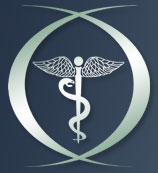
The Academy of Breastfeeding Medicine
So please think twice before you tweet or blog about something you read:
1) We suggest you wait and see if any of the respected news outlets like the Associated Press (AP), CNN or CBS reports on it (sorry, but I lost my faith in ABC News after their biased coverage of the latest, peer reviewed and respected-media reported study).
2) If you see a study that is gaining traction on the internet (and that has not been reported as in #1 above) you can tweet me a link (follow me at http://www.twitter.com/BestforBabes) or email me at bettina@bestforbabes.org, and we will find out the scoop from our friends at the Academy of Breastfeeding Medicine (ABM). Please read the ABM’s excellent response to a similarly misleading study in January (and dig that they mentioned the “Booby Traps”!!).
3) Help us educate the public and insist on responsible reporting by the media-spreading myths and misinformation is a “Booby Trap”!- consider a donation to Best for Babes to support our work!
Update: Alison Stuebe, MD, one of the authors of the study I mentioned above showing a lower risk of breast cancer for women who breastfeed and have a family history of the disease, expounded on my post with an excellent explanation of why the Health Day report is so confusing. Please read it and consider subscribing to the Acad. of Breastfeeding Medicine Blog. We need to get more information out of the heads of scientists and into the hands of moms!
By Amy West, CLC. Posted on February 23, 2010
By Amy West, CLC (amy@bestforbabes.org)
*UPDATE: The InfantRisk Center is now open! (806)-352-2519* That’s a number all breastfeeding moms should have, and can also give to care providers when medications are being prescribed.
When we talk about breastfeeding moms and medications, we reference Dr. Thomas Hale’s Medications and Mothers’ Milk. It’s the golden standard for finding information on how drugs affect breastfeeding mothers, their babies, and their breast milk. No other reference compares (for details on why Hale’s is the standard, read this article from Medscape).
The definitive guide to medications & breast milk
While the lactation community recognizes Dr. Hale’s work and uses it frequently, it’s not something that the medical community at large has adopted. Too many doctors, nurses, pharmacists and other practitioners simply aren’t aware that this reference is available-though as membership in the Academy of Breastfeeding Medicine grows, that will hopefully change. In the meantime, the Physician’s Desk Reference is the guide practitioners typically use to advise pregnant and lactating mothers. In short, the default listing for most medications in the PDR is to take the most conservative route possible: recommend that pregnant and lactating mothers not use them, as research is scarce and lawsuits are abundant.
This is where Dr. Thomas Hale has done a great service to the breastfeeding community: he has produced Medications and Mothers’ Milk, an evidence-based guide to lactational pharmacology (it includes information for pregnant women, as well). It is updated biannually in print form and on an ongoing basis online.
Here’ s the problem: If practitioners don’t know about Medications and Mothers’ Milk, or if they do, but don’t use it . . . then mothers and babies suffer. All too often, this is the case. It doesn’t have to be this way!
The solution? To create the InfantRISK Center. The goal of the InfantRISK Center is “To form a national call center, where mothers and their doctors can access up-to-date, evidence-based answers to their questions about using specific medications during pregnancy or lactation” (quote from the InfantRISK Center information page).
The sad reality of the medical world today is that practitioners simply aren’t educated enough on the subject of breastfeeding. And while every practitioner ought to have a copy of Medications and Mothers’ Milk, far too few do. This national call center can fill in the space where training and education fall off, giving practitioners the ability to provide their patients with accurate, safe advice in a timely manner. The InfantRISK Center can also be at the forefront of furthering research on lactation and medications, an area that is sorely lacking.
The key part of the InfantRISK Center’s mission is that it is also for mothers. Not every pregnant or breastfeeding mother is going to own their own copy of Medications and Mothers’ Milk. That said, many moms realize that they aren’t getting the most accurate, breastfeeding-friendly advice possible from their practitioners (for help in choosing great practitioners, see Your A-Team). The InfantRISK Center will give them a hotline to call and check on how drugs might interact with pregnancy and lactation, and do so with confidence and ease. No more consulting with Doctor Google when they aren’t comfortable with the counsel they’ve been given; no more asking around to friends; no more wondering. That’s a beautiful and Babe-worthy thing!
Here’s are some more details on how much this Center could serve the breastfeeding community: (taken from this page)
- [Provide] drug risk information based on evidence
- Reduce misinformation
- Reduce unnecessary pregnancy terminations
- Reduce unnecessary lactation termination (early weaning, leading to increased health risks for mother & baby)
- Provide health care professionals with accurate and understandable risk information and registry data
- Provide and advise physicians on alternative medications
The InfantRISK Center has huge potential for helping moms and babies. The challenge will be getting the word out to doctors, nurses, pharmacists, practitioners and moms so that all of them know where to turn whenever there is a question about breastfeeding and medications. You can help by letting other moms and your health care providers know about it-share this blog post!
If you’d like to help Best for Babes get this information into the hands of more moms and healthcare providers, you can donate here.






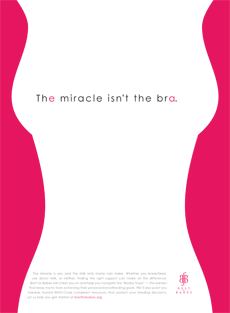
 @BestforBabes
@BestforBabes Best For Babes
Best For Babes


